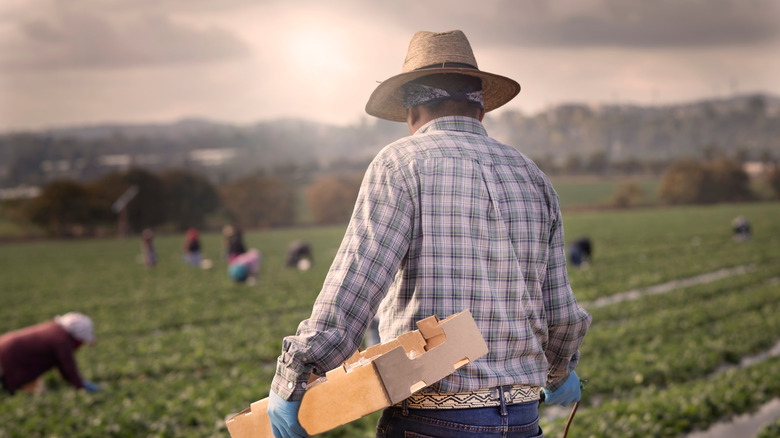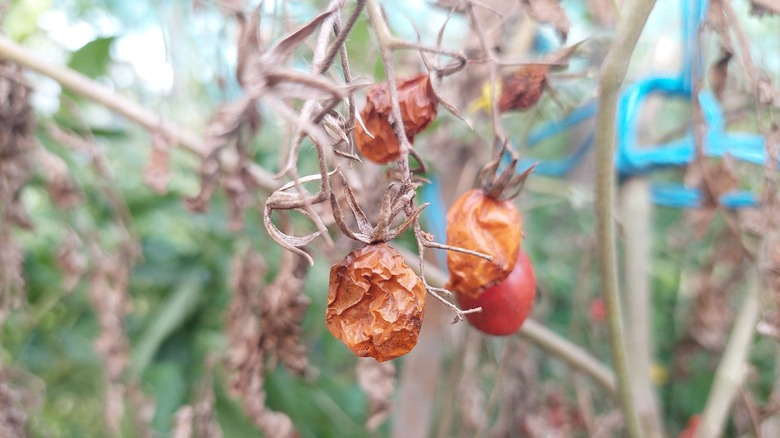California's Latest Weather Problems Could Spell Trouble For Food Prices
Food prices have significantly risen over the last year, which has hit customers at the grocery store hard. According to Forbes, a Consumer Price Index report from the Bureau of Labor Statistics says the prices have inflated 11.4% from August 20221 to August 2022. There are multiple reasons consumers are feeling this impact on their wallets, including disruptions to the supply chain that COVID-19 caused and the war in Ukraine. Russia and Ukraine produce huge amounts of wheat that are distributed throughout the world but have been severely limited because of the conflict. Sanctions on Russia have also caused oil and gas prices to skyrocket, directly impacting the food industry because it's more expensive to create and transport the food.
Some of the food items that have seen staggering price increases are eggs, butter, flour, and roasted coffee, per CNBC. A Senior Economic Analyst at Bankrate told the outlet that because of this, shoppers have been trying not to buy as much at the store. But "food, at its basic level, is not discretionary," he said. "That's the challenging aspect of the circumstances we are in." On top of all of this, California is now being struck with even more bad news for grocery customers.
California crops have been impacted by the weather
California has been experiencing a drought that is only going to drive up prices more, notes Reuters. Central California has had very little rain and snow, which directly impacts the water supply of the Colorado River. This has caused some of the fresh produce that the golden state is known for to perish, like tomatoes and onions, and could cause the same issue for its leafy greens.
Farmer Aaron Barcellos lives near Firebaugh, California, and told the outlet he planted a fraction of the tomatoes he normally does because of the drought. "I don't think farming in California has ever been more complex and more challenging, and the drought is a large part of that," he explained. Because of this issue, many farmers have already negotiated higher prices for tomatoes and onions.
If you're like many Americans that are feeling stressed about the price hikes, CNBC has some suggestions for how to cut back on spending. It recommends buying generic brands when you can because they often cost less and planning your meals ahead of time, so you're less likely to impulse buy when you're at the grocery store. It's also wise to purchase in bulk when you can, as the price is often lower per item.

